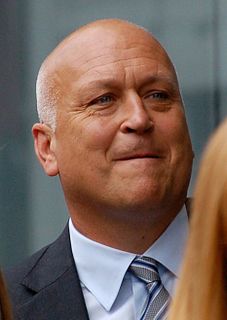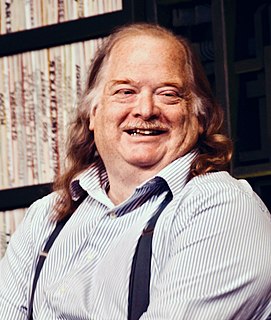A Quote by Owsley Stanley
The things that were happening 30 years ago are now very interesting to people, now very much in style again. There is some kind of 30 year resonance that goes through human culture and expresses itself in different ways.
Related Quotes
We have made a huge amount of progress over the last 50 years by enabling trade, by enabling kind of collaboration and learning. And actually, in fact, when you look at your average 30-year-old today, they're much better off than a 30-year-old 20 years ago, 30 years ago, because of progress in technology and health care and all the rest of this.
I think my philosophy has evolved over the years. I started teaching almost 15 years ago and I've learned that how one student learns is obviously much different than how another student learns and so I've had to figure out how to get through to people honestly without hurting their feelings - which is no easy task just in the scope of being a human being, much less in the classroom, but which is something that is more important to me now than it was when I was 30 - and to show them a path to improving.
There are so many things happening nowadays that you've seen in films from years ago, like cloning and all of those things are actually happening now, so we can kind of visualize it a lot more, and I think our generation particularly know that we're going to be a big part of that, we we're kind of fascinated with how human beings will fare in the world.
Every human being is tried this way in the active service of expectancy. Now comes the fulfillment and relieves him, but soon he is again placed on reconnaissance for expectancy; then he is again relieved, but as long as there is any future for him, he has not yet finished his service. And while human life goes on this way in very diverse expectancy, expecting very different things according to different times and occasions and in different frames of mind, all life is again one nightwatch of expectancy.
If you listen to Hillary 30 years ago and Hillary today, she's still complaining about the same things. She's still promising to fix the same things. She's still suggesting we need to address the same things. It tells me that in 30 years, she has not solved anything. In 30 years, she hasn't fixed anything. In 30 years, she hasn't made anything better.
There are people that tell you we gotta colonize Mars in the next 50 years if we're to survive as a human race. It's absolute stupidity. All it does is scare people - particularly young, impressionable minds who already think there isn't gonna be a planet in 30 years. Now they're thinking, since there isn't gonna be a planet, "If we don't get to Mars in 30 years, I'm gonna die."
To me, the main difference between young people now and the people I was young with isn't so much style, it's the relationships they have with their parents. Their parents like them much more than ours liked us. Our parents weren't our friends. But now I see my friends on the phones with their, what, 30 - year - old kids? And they're talking about feelings.
The good news is that by the second year, those cravings were about as half as frequent, and by the third year, half as much again. I'm still a little bent, a little crooked, but all things crooked, I can't complain. After all those years of all kinds of abuse and crashing into trees at eighty miles an hour and jumping off buildings and living through overdoses and liver disease, I feel better now than I did ten years ago. I might have some scar tissue, but that's alright, I'm still making progress.


































